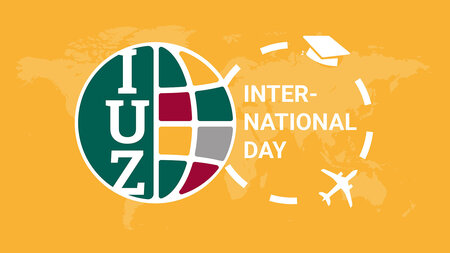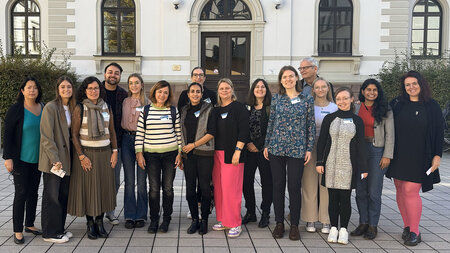For Better Teaching Quality at German Universities
The Professorship of Educational and Developmental Psychology at the TU Chemnitz will present the latest research findings at the 50th Congress of the German Psychological Society
-

René Bochmann (r.), research associate at the TU Chemnitz’s Professorship of Educational and Developmental Psychology, in a pedagogical-psychological consultation session with Junior Professor Dr. Sebastian Zug of the Otto-von-Guericke University Magdeburg. Photo: Professorship of Educational and Developmental Psychology
“Many studies on the effectiveness of student evaluations of courses have proven that simply giving feedback about the results of surveys is not enough to produce a measurable and stable improvement in teaching quality,” says Prof. Dr. Heiner Rindermann, head of the Professorship of Educational and Developmental Psychology at the Technische Universität Chemnitz. Rather, an additional external consultation for lecturers is necessary to achieve significant and stable changes in teaching. With this in mind, the TU Chemnitz started the “External, pedagogical-psychological consultation for lecturers to improve teaching quality with focus on effective use of socio-cognitive conflicts” project in October 2014. Preliminary results will be presented at the 50th Congress of the German Psychological Society (DGPs) in Leipzig on September 20, 2016.
The technically complex project involves video recordings of lectures at eleven university locations, including Chemnitz, Leipzig, Dresden, Regensburg, Bayreuth, Würzburg, Magdeburg, Wildau, Rostock, Vechta and Paderborn. The lectures are first evaluated by the students present as well as by the lecturer and then the teaching quality is appraised by multiple external raters (professors from 23 German universities) via a specially programmed portal. In addition, project member René Bochmann of the Professorship of Educational and Developmental Psychology counsels the lecturers on-site. “The consultation is done individually and is didactic and pedagogical-psychological in nature with the goal of improving the teaching quality of those lecturers who participate,” explains Bochmann. Finally, the effectiveness of several variations of pedagogical-psychological consultation approaches are compared to teaching quality evaluations without any consultation. “Lecturers should become sensitized to socio-cognitive conflicts and they should learn didactic strategies to successfully increase the rate of learning,” reports Rindermann. In order to measure their successful implementation, participants complete proficiency tests during the course of the project.
At the DGPs’s anniversary congress, Bochmann will demonstrate the effect of the teaching concept on student learning behavior as well as student assessment of teaching quality. Dr. Antonia Baumeister, who leads the project alongside Prof. Rindermann, will give a speech addressing the question of how socio-cognitive conflicts between the perspectives of lecturers and those of their students can be used in order to improve teaching quality. Additional speeches will be given by cooperation partners: Prof. Dr. Markus Dresel and Martin Daumiller of the University of Augsburg will present research findings on the relationship between lecturer motivation (self-reported by lecturers) and lecture quality (from the students’ perspective). Sociologists Prof. Dr. Tobias Wolbring of the University of Mannheim and Edgar Treischl of LMU Munich will report on opportunities and pitfalls that can be inherent in internet-based course evaluations.
The Chemnitz-based research project will receive funding through the Federal Ministry of Education and Research through September 2018 via the special research emphasis “Science and Higher Education Research” in the funding directive “Accompanying Research for the Quality Pact for Teaching” and with funds from the Federal Ministry of Education and Research in the amount of 430,000 euros.
Homepage of the project: www.tu-chemnitz.de/hsw/psychologie/professuren/entwpsy/sokonbe/index.html
More information is available from René Bochmann, Telephone +49 371 531-36128, E-Mail rene.bochmann@psychologie.tu-chemnitz.de.
(Translation: Sarah Wilson)
Mario Steinebach
25.08.2016





